’57 M.D. — Edward C. Muecke of Quogue, N.Y., Aug. 29, 2023; practiced urology. Dr. Muecke served a two-year tour of duty in the U.S. Army Medical Corps, where he held the rank of captain, before returning to academia, where he pioneered new surgical techniques in embryological urology. Dr. Muecke held the office of chief surgeon and head of urology at then-New York Hospital before leaving to launch a private practice, New York Urological Associates. Upon retirement, Dr. Muecke became a professor of clinical urology emeritus at Weill Cornell Medicine. Dr. Muecke was an avid mountaineer and alpine skier and was adored by those who knew him for his immense knowledge of history and science, his bottomless cheer and goodwill, his enchanted imagination, his magical storytelling and his infectious humor.
’58 M.D. — Howard R. Francis of Provo, Utah, Jan. 31, 2024; obstetrics & gynecology. Deeply committed to his career, Dr. Francis founded the Provo Ob-Gyn Clinic in 1963, where he delivered over 15,000 babies before retiring in 1991. Dr. Francis was dedicated to community and served as chairman of the Utah County Cancer Society, director of the Utah County Volunteer Medical Care Clinic, and chief of OBGYN at Utah Valley Hospital. His love for life extended to hobbies included hunting, fishing, boating, ranching, horseback riding, camping, traveling, gardening, and cane making.
’59 M.D. — Michael M. Conroy of Cheshire, Conn., Aug. 19, 2023; general surgery. After medical school, Dr. Conroy interned at Bellevue Hospital in New York from 1959-1965 in general surgery, finishing as chief resident. He then served for two years in the U.S. Army as a surgeon, initially at Ft. Knox, Ky., and then in Nha Trang, Vietnam, at the 8th Army Field Hospital. After completing his military service in 1967, Dr. Conroy returned to Meriden and opened a private practice, performing surgery at both Meriden-Wallingford Hospital, where he served as chief of staff in the mid-1970s, and Memorial Hospital in Southington. He also assisted patients at Veterans Memorial Hospital in Wallingford. Dr. Conroy retired in 1998 after 31 years, having created and led Surgical Associates of Meriden, a physicians group of fellow surgeons. Michael was married for 62 years to Patricia G. “Tish” Conroy, the love of his life and with whom he enjoyed traveling, musicals, dining and dancing. With friends and his five sons, Dr. Conroy loved to swim in the ocean, sail, play paddle-racket, tennis, golf, bridge, touch football, basketball and talk with friends, family and Tish on their porch. He also applied his surgical skills to woodworking, making a variety of Christmas presents for his sons for over 35 years.
’61 M.D. — Peter S. New of Punta Gorda, Fla., formerly of Gloucester, Mass., April 11, 2022; practiced internal medicine and cardiology. Dr. New worked at the Veterans Administration in Florida; was founder of Cape Ann Medical Center, Gloucester; enjoyed dancing, basketball, competitive tennis and sailboat racing. In addition to his love of sports and outgoing nature, Dr. New was known for his knowledge of medicine, his dancing and his charm and wit. He was extraordinarily fond of puns and plays on words, deeply enjoying Pogo comics, among others.
’61 M.D. — Richard Sheehan of Dallas, Dec. 25, 2022; practiced hematology. After serving as chief of the clinical hematology section at Brooke Army Medical Hospital at Ft. Sam Houston in San Antonio, Dr. Sheehan led the Hematology Oncology department at the Dallas Veterans Administration Hospital until his retirement in 1999. He was also the assistant chief of the nuclear medicine service of the VA, and a professor of internal medicine at the University of Texas Southwestern Medical School. Dr. Sheehan was a lifelong learner, an avid lover of sports and a collector of imported beer.
’63 M.D. — Edward Copeland III of Gainesville, Fla., March 31, 2024; surgeon. After his residency in general surgery, Dr. Copeland completed his compulsory two-year tour of duty in the United States Medical Corps with assignments to both Vietnam and the Surgeon General’s Office in 1971, earning a Bronze Star for meritorious service in a combat zone and an election to the Florida Veterans Hall of Fame in 2019. Following an advanced surgical oncology fellowship at the MD Anderson Hospital and Cancer Institute, Dr. Copeland joined the faculty of M.D. Anderson and the newly chartered University of Texas Medical School at Houston, rising to full professor of surgery at both institutions. In 1982, Dr. Copeland left Houston to become the Edward R. Woodward Professor and chair of the Department of Surgery at the University of Florida College of Medicine, a position he maintained for the next 21 years. During this time, he was also the first director of the University of Florida Shands Cancer Center and served the institution as interim dean in 1996-1997. He was elected to distinguished professor in 2004 and received the university’s lifetime achievement award in 2008. Dr. Copeland was the recipient of numerous awards and served as president of numerous surgical associations and societies. He published hundreds of journal articles, dozens of abstracts and editorials, and was editor or co-editor of 23 books. He was preceded in death by his wife of 52 years and is survived by their two children and two grandchildren.
’65 M.D. — Dick Katzin of Oakmont, Pa., Jan. 4, 2024; ophthalmologist. Dr. Katzin was a proud double-red, having graduated from Cornell University and Weill Cornell Medicine. Dr. Katzin left medical school to join the United States Marine Corps and became first lieutenant as an infantry officer. After medical school, Dr. Katzin and his family moved to Pittsburgh, where he began his career as an ophthalmologist at the University of Pittsburgh and became a clinical professor of ophthalmology. He later opened his private practice in Monroeville, Pa. Dr. Katzin was also a valued mentor and sometimes the town’s deputy sheriff. He continued to serve his close friends through the Department of Veterans Affairs well into his 80s.
’69 M.D. — Neil K. Kochenour of Tuscon, Ariz., Nov. 2, 2023; practiced obstetrics & gynecology. Dr. Kochenour served in the army as a doctor in the University of Louisville Hospital before moving to Salt Lake City, where he accepted a position at the University of Utah Hospital, eventually becoming medical director. He initiated the maternal fetal medicine high-risk pregnancy division and the fetal diagnostic center at Utah Hospital before these entities were common. After retiring and moving to Tucson, Dr. Kochenour raised funds and built two assisted living facilities and served as chief administrator for the buildings. He was an avid traveler, an athlete, a fisherman, and an active member of a book club for over 43 years.
’69 M.D. — John Douglas Mann of Chapel Hill, N.C., Jan. 19, 2024; practiced neurology. Dr. Mann completed his postgraduate training in neurology at the University of Virginia in Charlottesville. In 1976, he accepted a position at UNC Chapel Hill, where he would remain for the rest of his career and served as professor of neurology. He was instrumental in the leadership of the UNC program on integrative medicine, was director of UNC’s prestigious NIH T32 research fellowship program in complementary and integrative health care and took particular pride in having been appointed chairman of the biomedical internal review board for the university. Dr. Mann loved all sports but had a passion for UNC basketball, where he had season tickets to see the Tar Heels play for over 40 years. He had a wide array of interests including astronomy, collecting stamps and coins, and dabbling in watercolors and music. His life’s journey was marked not only by professional success and a love of learning, but also by the deep bonds he shared with his family and friends.
M.D. ’97, Ph.D. ’97 — David O. Ferguson of Ann Arbor, Mich., Jan. 6, 2024; pathology. After completing a pathology residency at the Brigham and Women’s Hospital and postdoctoral training at Harvard Medical School, Dr. Ferguson joined the faculty in the pathology department at the University of Michigan Medical School as an assistant professor, where he pursued his passions as a researcher, clinician and educator for over 20 years. Nationally and internationally recognized for his research contributions to the field of genome instability, he was a Michigan Medical School Biological Sciences Scholar and received Scholar Awards from the Sidney Kimmel Foundation for Cancer Research and Leukemia and Lymphoma Society. Dr. Ferguson was also inducted into the American Society for Clinical Investigation honor society. He was deeply devoted to his family and enjoyed a life filled with love, laughter and science.
Faculty
Janet A. (Mouradian) Markarian, M.D., of Congers, N.Y., Feb. 25, 2024; professor emerita of pathology. Dr. Mouradian arrived in the United States from Baghdad, Iraq, in 1964 to begin her career as a resident at then-New York Hospital. She used her maiden name of Mouradian and rose through the ranks, eventually becoming a professor in 1984 and, ultimately, chief of surgical pathology. During her 36-year tenure at Weill Cornell Medicine, she was an integral part of the Department of Pathology & Laboratory Medicine and a valued and respected teacher of medical students, residents and fellows. Enthusiastic and imaginative, she was recognized and awarded for her teaching and authored or co-authored scores of scientific research papers. Her dedication, expertise and warm presence will always be remembered by those that had the privilege of working with her. Her Armenian heritage was central to her life, and she was dedicated to humanitarian and cultural causes. Dr. Mouradian is survived by her husband of 58 years, Herand Markarian, a son, a daughter, two grandchildren, and four nieces and their families.
James P. Smith, Jr., M.D. of Interlaken, N.J., March 25, 2024; professor of clinical medicine and former medical director of the respiratory intensive care unit at what is now NewYork-Presbyterian Hospital/Weill Cornell Medical Center. A renowned, long-time Weill Cornell Medicine faculty member, Dr. Smith helped pioneer the research and treatment of chronic obstructive pulmonary disease, lung cancer, and tuberculosis. A key clinical breakthrough, along with celebrated pulmonologist Dr. Lawrence Scharer, was developing the use of closed pleural biopsy with the Abrams needle in the diagnosis of tuberculosis. Dr. Smith was also among the first to recognize the existence of isoniazid-induced hepatitis. After receiving his M.D. from Georgetown University School of Medicine in 1960, Dr. Smith began his residency at then-New York Hospital. From 1962 to 1964, Dr. Smith served as assistant chief of medicine in the U.S. Army, 79th Engineer Battalion, in Pirmasens, Germany. Upon return from active duty, Dr. Smith finished his fellowship in 1966. Together with colleagues in the Departments of Radiology and Thoracic Surgery, Dr. Smith founded the Early Lung Cancer Action Project, an annual screening conference he moderated for more than 25 years. It has since evolved into an international, multi-institution initiative. In addition to his remarkable clinical contributions, Dr. Smith was a beloved teacher and mentor to interns, residents and fellows alike. He served on numerous committees and boards, including the Boards of the American Lung Association in New York, the American Lung Association, and the American Thoracic Society. A past president of the American Lung Association in New York, Dr. Smith remained active in the organization for many years. A dedicated public servant, Dr. Smith also held leadership roles in the New York State Thoracic Society and NewYork-Presbyterian’s Thoracic Tumor Board. In 2002, the Weill Department of Medicine established the James P. Smith, M.D. Clinical Scholar Award as an endowed position in recognition of his outstanding work advancing the institution’s clinical and research missions and growing the Division of Pulmonary and Critical Care Medicine. He is survived by three children and 10 grandchildren.
Marc E. Weksler, M.D. of Tenafly, N.J., March 11, 2024; Irving Sherwood Wright Professor of Geriatrics (1978-2012) and professor emeritus of medicine. Dr. Weksler played a pivotal role in the development of Weill Cornell Medicine’s geriatric division and, as its division chief from 1978 to 1998, was one of the first chiefs of geriatric medicine in the country. During his time as chief, Dr. Weksler initiated the division’s influential clinical and research fellowship programs, including a landmark joint course on immunology and aging for graduate students. His widely published work is acknowledged as paradigm-shifting in its investigation into the biology of immune senescence and the clinical immunology of the elderly. Immune senescence has since been shown to contribute to age-associated neoplasms, vascular disease, infections and Alzheimer’s disease. In recognition of his significant contributions to the field of geriatric research, Dr. Weksler was selected for a National Institutes of Health Research Career Development Award and later an NIH MERIT award. He was a past editor and associate editor, respectively, of the Journal of Clinical Immunology and Journal of lmmunology. He also served on the editorial board of Immunology and Aging. He was elected to the American Society for Clinical Investigation, the Association of American Physicians, the Interurban Clinical Club and the American Osler Society, and served as chair of the World Health Organization’s Aging Immunology Program. Dr. Weksler is survived by his cherished wife of 65 years, Dr. Babette Weksler, a professor emerita of medicine at Weill Cornell Medicine, and two children.
Summer 2024 Front to Back
-
Features
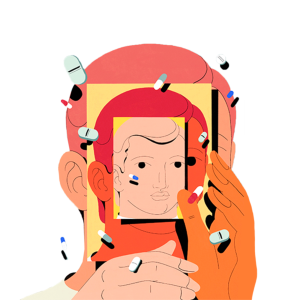
Science Over Stigma
By probing the physical cause of obesity, researchers have repudiated harmful misconceptions, leading to new, highly effective medications. -
Features

The Sounds of Science
How insights from ornithology, coupled with advances in AI, could enable doctors to screen for disease using the human voice. -
Features
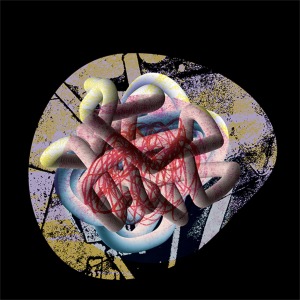
Bones’ Secret Cells
Research led by Dr. Matthew Greenblatt and his lab is revealing connections between bone stem cells and a surprising array of conditions — including cancer. -
Notable
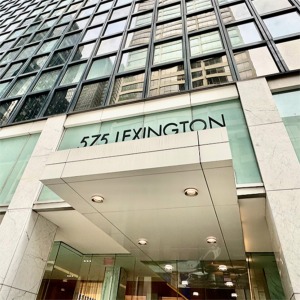
Expansion in Midtown
A 216,000 square-foot expansion of clinical and research programs at 575 Lexington Ave. will provide state-of-the-art clinical care at the Midtown Manhattan location. -
Notable

A Dramatic Growth in Research
In the decade since the Belfer Research Building’s opening, Weill Cornell Medicine’s sponsored research funding has more than doubled. -
Notable

Dateline
Heart disease presents differently in resource-poor countries like Haiti. Dr. Molly McNairy and colleagues are working to identify underlying causes and prevention. -
Notable

Overheard
Weill Cornell Medicine faculty members are leading the conversation about important health issues across the country and around the world. -
Notable

News Briefs
Notable faculty appointments, honors, awards and more — from around campus and beyond. -
Grand Rounds
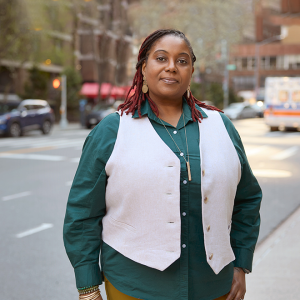
Living With Endometriosis: A 12-Year Journey
How the right treatment reduced the pain of endometriosis -
Grand Rounds
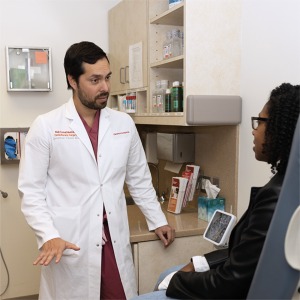
Taking Action Against Lung Cancer
Monitoring by Weill Cornell Medicine’s Incidental Lung Nodule Surveillance Program can lead to early cancer detection. -
Grand Rounds
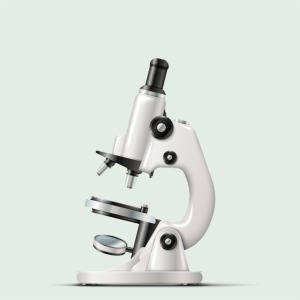
News Briefs
The latest on teaching, learning and patient-centered care. -
Discovery
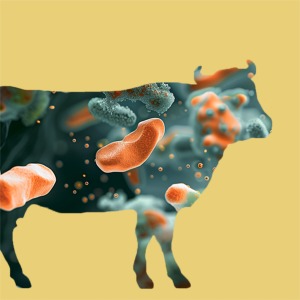
Gut Check
New evidence shows that a bacterium found in the gut of livestock could be a trigger of multiple sclerosis in humans. -
Discovery
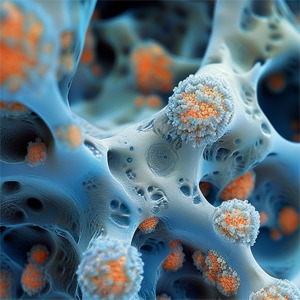
Researchers Chart the Contents of Human Bone Marrow
A new method for mapping the location and spatial features of blood-forming cells within human bone marrow provide a powerful new means to study diseases that affect it. -
Discovery
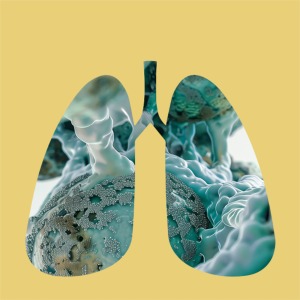
Findings
The latest advances in faculty research, published in the world’s leading journals. -
Alumni
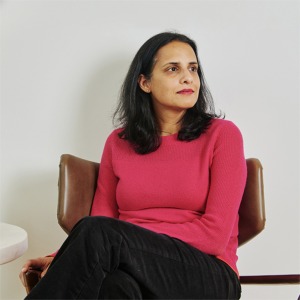
Profiles
Forging critical connections to move research from the bench to the bedside, our alumni are making an impact. -
Alumni

Notes
What’s new with you? Keep your classmates up to date on all your latest achievements with an Alumni Note. -
Alumni

In Memoriam
Marking the passing of our faculty and alumni. -
Alumni
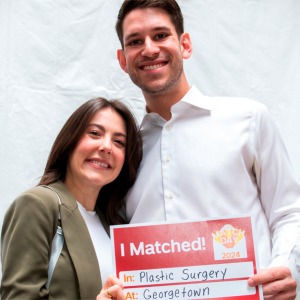
Moments
Marking celebratory events in the lives of our students, including the White Coat Ceremony and receptions for new students. -
Second Opinion
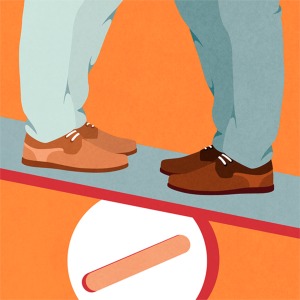
Equal Risk
Does race have a role in calculations of health risks? -
Exchange

Health Equity
Two faculty members discuss the importance of community-engaged research in their work to help combat cancer disparities fueled by persistent poverty. -
Muse
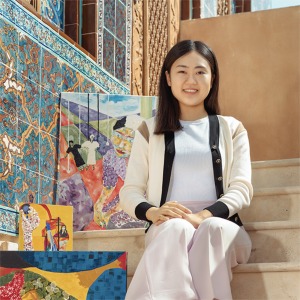
Finding Strength in Art
Surin Lee is a Weill Cornell Medicine-Qatar medical student, Class of 2026, and a visual artist. -
Spotlight

Partners in Solving Surgical Challenges
Dr. Darren Orbach (M.D. ’98, Ph.D.) and Dr. Peter Weinstock (M.D. ’98, Ph.D.) are pioneering the use of practice simulations to ensure successful complex surgeries.